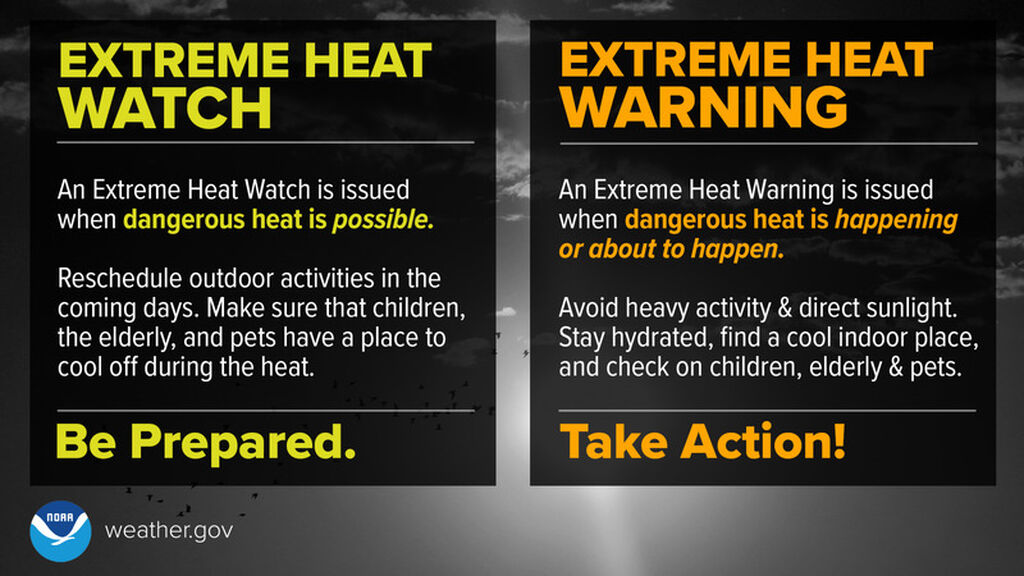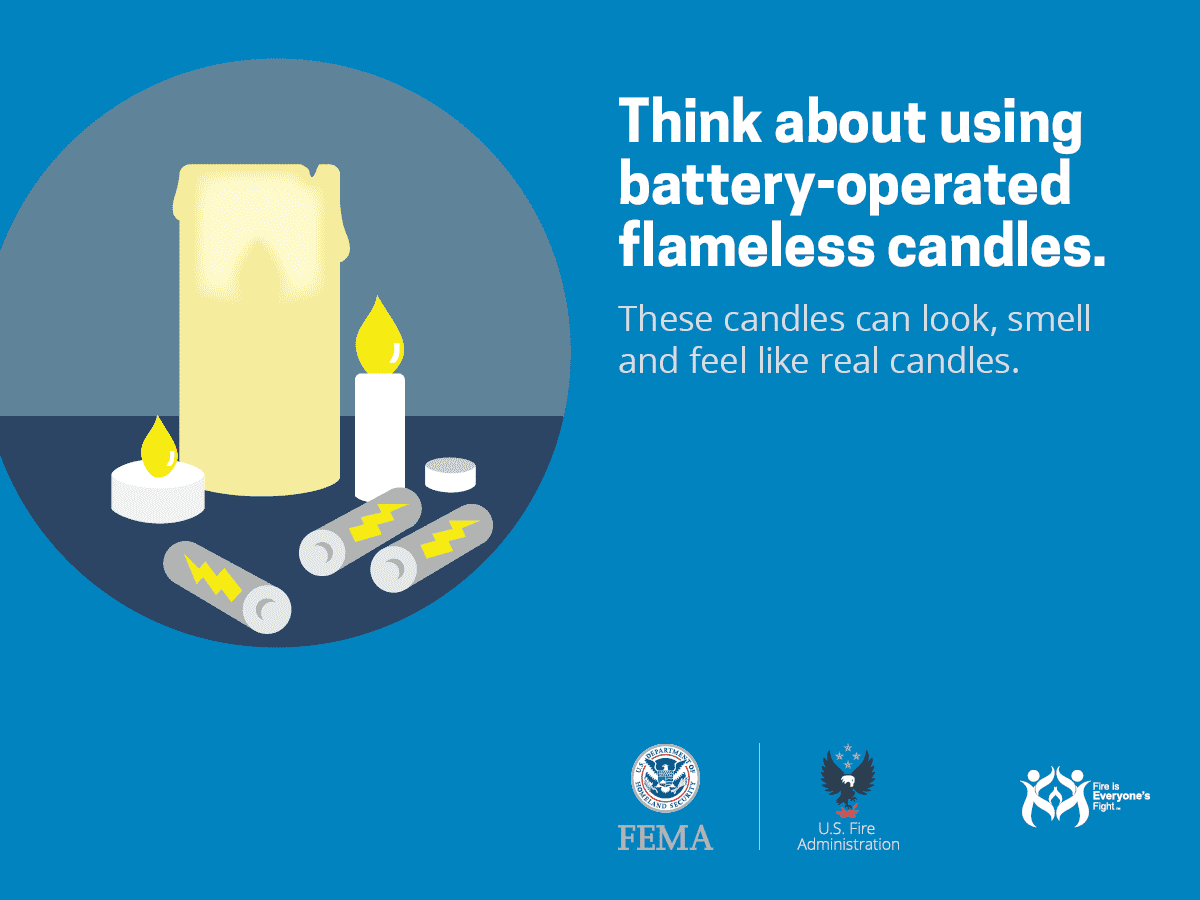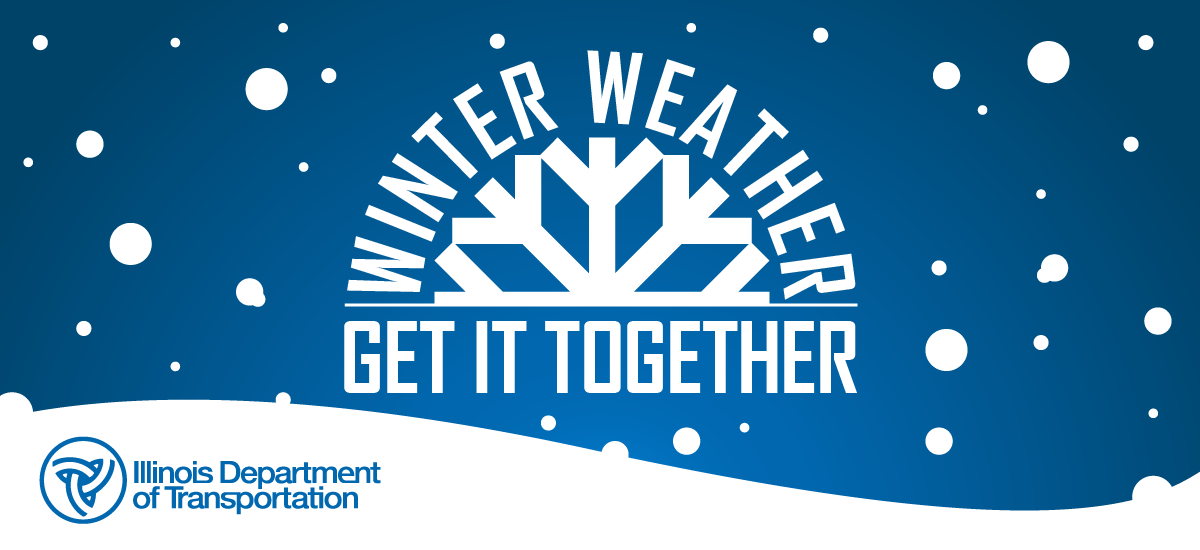- Details
15 Holiday Safety Tips
The holidays are here, and while decorations, travel and meals together bring joy, they also come with risks. Vacationers crowd icy roads, cooks multitask in the kitchen, and, according to the National Fire Protection Association, holiday decorations cause nearly 1,000 house fires in the U.S. each year. A little planning now will give you and your loved ones the gift of safety.
Follow these 15 tips to make the holidays safe and fun for everyone you gather.
Decorate Safely
1. Keep candles at least a foot away from anything that can burn. Make sure they’re stable, and somewhere kids, pets or you won’t knock them over. For extra safety, use flameless candles – you can find ones that flicker and smell like real candles.
2. Check lights before you hang them. If you find frayed wires or loose bulb connections, throw the string away. Read the manufacturer’s instructions for the number of strings you can safely connect.
3. Turn off all lights – electric or flame – when you leave the house or go to bed.
4. Place your Christmas tree out of the way of exits, and at least 3 feet away from heat sources like radiators, candles or vents.
5. Water your tree every day – a dry tree can burn hot and fast.
Travel Smart
6. Check the weather. Make sure you have enough layers, and see whether you should plan for wintery roads along the way.
7. Prepare your car. Check the lights, tires, oil, windshield wiper fluid and antifreeze levels, stock your emergency car kit and pack winter supplies like ice scrapers and tire chains.
8. Drive safely. Increase your following distance to give yourself time to stop on slick roads, and don’t crowd snowplows.
9. Keep your gas at least half full to stop the fuel line from freezing.
10. If conditions are bad, wait to travel.
Cook With Care
11. Turn pot handles toward the back of the stove so no one bumps them.
12. Watch what you’re cooking. If you leave the kitchen, turn the stove off. If you see smoke or grease boiling, turn the burner off.
13. Keep a lid or baking sheet near the stove. If a pan catches fire, cover it with your lid, turn the burner off and leave it until it’s completely cooled.
14. Don’t throw water on a grease fire: it’ll splash and spread the flames. If your oven catches fire, turn it off and keep the door closed.
15. If a fire won’t go out or you don’t feel comfortable approaching it, lead everyone outside and call 9-1-1.
However you celebrate this holiday season, think about safety. Visit ready.gov/winter-ready for more ways you can help yourself, your friends and family close 2025 on a bright note.
- Details
Winter Weather – Get it Together: Make a plan for snow and ice season
Annual campaign reminds public: Get ready for winter travel
With temperatures falling, frosty mornings becoming common and snow starting to creep into the forecast, the public is reminded that it’s time for “Winter Weather – Get it Together.” The Illinois Department of Transportation, Illinois State Police and Illinois Tollway spend the entire year preparing for snow and ice season but are asking you to get ready for winter travel over the coming months.
“At IDOT, we have been busy bringing in extra help, topping off materials and getting equipment ready to go,” said Illinois Transportation Secretary Gia Biagi. “We need your help as well. Taking some basic, preventive steps before venturing out and during your travels will ensure you protect yourself and stay prepared for whatever winter has in store.”
It's never too early to begin transitioning to basic winter driving skills and anticipating for even routine trips to take longer, though temperatures are above freezing during the day and roads appear clear. As part of the “Winter Weather – Get it Together” campaign, travelers are encouraged to follow these guidelines: Bookmark IDOT’s GettingAroundIllinois.com to check winter road conditions 24/7 before heading out. Get in the habit of monitoring weather forecasts.
- Give yourself plenty of extra time for trips. Slow down and increase the distance between other vehicles.
- Prepare an emergency kit with jumper cables, flares or reflectors, windshield washer fluid, an ice scraper, traction material, blankets, non-perishable food and a first-aid kit. Have a cellphone charger in your vehicle at all times.
- Check your battery, charging system and belts for repairs or replacements. Inspect your tires for wear and pressure. Make sure all the lights on your vehicle are in working order.
- Watch out for black ice and slippery conditions, even if there is no snow on the ground. A road may appear clear but can be treacherous with minimal amounts of moisture.
- Be especially careful when approaching intersections, ramps, bridges and shaded areas, which are prone to icing and can become extremely slick.
- Do not travel during bad weather unless absolutely necessary. If you do have to drive, check the forecast and make sure someone is aware of your route. Familiarize yourself with public transportation options in your community.
- Don’t crowd the plows and other equipment treating roads during winter. You might see the plow drivers, but they might not see you. Also, road conditions are much better behind than in front of the plow. Any plow that’s hit is one less resource available to clear the roads.
- Always wear a seat belt. It’s the law in Illinois. And it’s your best defense in a crash.
- Drop it and drive. Put down the mobile devices. This, too, is the law.
- Give them distance. Obey the Move Over law by slowing down and changing lanes when approaching ANY stopped vehicle.
- Follow IDOT on Facebook and X to see how the agency is responding to winter weather throughout the state.
- For more winter driving tips, check out this short IDOT video.
“Every year, ISP troopers handle hundreds of crashes due to snow and ice,” said ISP Director Brendan F. Kelly. “The most important thing to do is to slow down and give yourself extra time to get where you're going. Driving fast in winter conditions only puts you and the lives of the people around you at risk.”
For the upcoming winter, IDOT will have nearly 1,900 trucks available for deployment to plow more than 45,000 lane miles of roads statewide, the equivalent of driving back and forth between New York City and Los Angeles eight times. Last winter, IDOT crews spread more than 312,000 tons of salt statewide. This winter, salt domes are at capacity, with more than 542,000 tons on hand, almost twice the weight of Willis Tower.
To increase staffing for winter operations, hiring at IDOT continues for both temporary and permanent positions. For information on job postings throughout the state, visit illinois.jobs2web.com or IDOT’s Employment page.
“When winter storms strike, we protect our customers by rapidly deploying our road crews and snowplows to keep our roads clear and safe even during severe weather,” said Illinois Tollway Executive Director Cassaundra Rouse. “Safety is always our top priority and even during storms drivers who become stranded on our roads can dial *999 and know that help is on the way. Customers need to help us protect them by slowing down during storms and increasing their distance from plows and other vehicles.”
The Illinois Tollway mobilizes a fleet of 196 snowplows and taps its stockpile of 105,000 tons of salt to clear its roads during winter storms so the 1.6 million daily drivers who rely on the tollway can safely reach their destinations.
Before traveling on the Illinois Tollway this winter, drivers should check Tollway Trip Tweets to obtain real-time roadway incident information and pavement conditions via @94_294_Tollway, @I_90_Tollway, @I_88_Tollway, @I_355_Tollway and @IL_390_Tollway.
- Details
IEMA-OHS Recognizes National Preparedness Month As Severe Weather Events Increase in Number
SPRINGFIELD—Just this year, Illinois has already seen 115 tornadoes touch down in the state, which is the highest number of twisters in the nation for 2025. On top of that, communities have faced repeated rounds of severe storms, unleashing destructive straight-line winds and flooding across the state. With September recognized as National Preparedness Month, the Illinois Emergency Management Agency and Office of Homeland Security (IEMA-OHS) is urging all residents to take this moment to review and strengthen their disaster preparedness plans
“Severe weather can strike with little warning, and the best defense is being ready before it happens," said IEMA-OHS Acting Director Theodore (Ted) Berger. “The national ‘preparedness starts at home’ campaign reminds us that we each have a role to play by mapping out a plan and reviewing insurance coverage”
IEMA-OHS offers several blueprints to help residents prepare for an emergency:
]• Emergency kits for home and vehicle: https://ready.illinois.gov/plan/gobag.html
• Family communications plan (invaluably if phones or cell service is out): https://ready.illinois.gov/content/dam/soi/en/web/ready/sitecollectiondocuments/ihs-family-communication-plan.pdf
• Pet preparedness emergency kit: https://ready.illinois.gov/plan/animals.html
• Digital safety: https://www.ready.gov/cybersecurity
“Spending just a small amount of time on preparedness can save you significant costs and frustration when disaster strikes,” said Berger. "Something as simple as checking with your insurance agency about flood coverage can give you peace of mind. Too often, people don't discover a gap in insurance until it's too late."
- Details
Disaster Preparedness Is an Important Part of Back-to-School Planning
- Students can reach Safe2Help several ways:
- Call 1-844-4SAFEIL (723345)
- Text SAFE2 (72332)
- Online app at https://app.safe22helpil.com/
- Email
This email address is being protected from spambots. You need JavaScript enabled to view it. .
- Details

IEMA-OHS Recognizes Extreme Heat Safety Month

- June Is Pet Preparedness Month
- 2025 https://ready.illinois.gov/press-releases/press-release.31249.html#:~:text=VIEW%20MORE-,Severe%20Weather%20in%20Midwest%20Can%20Be%20Spawned%20by%20Hurricanes,-Press%20Release%20%2D%20Tuesday
- April is Hazardous Materials Safety Month
- IEMA-OHS Commemorates 100th Anniversary of the Deadliest Tornado in Illinois
Page 1 of 44






